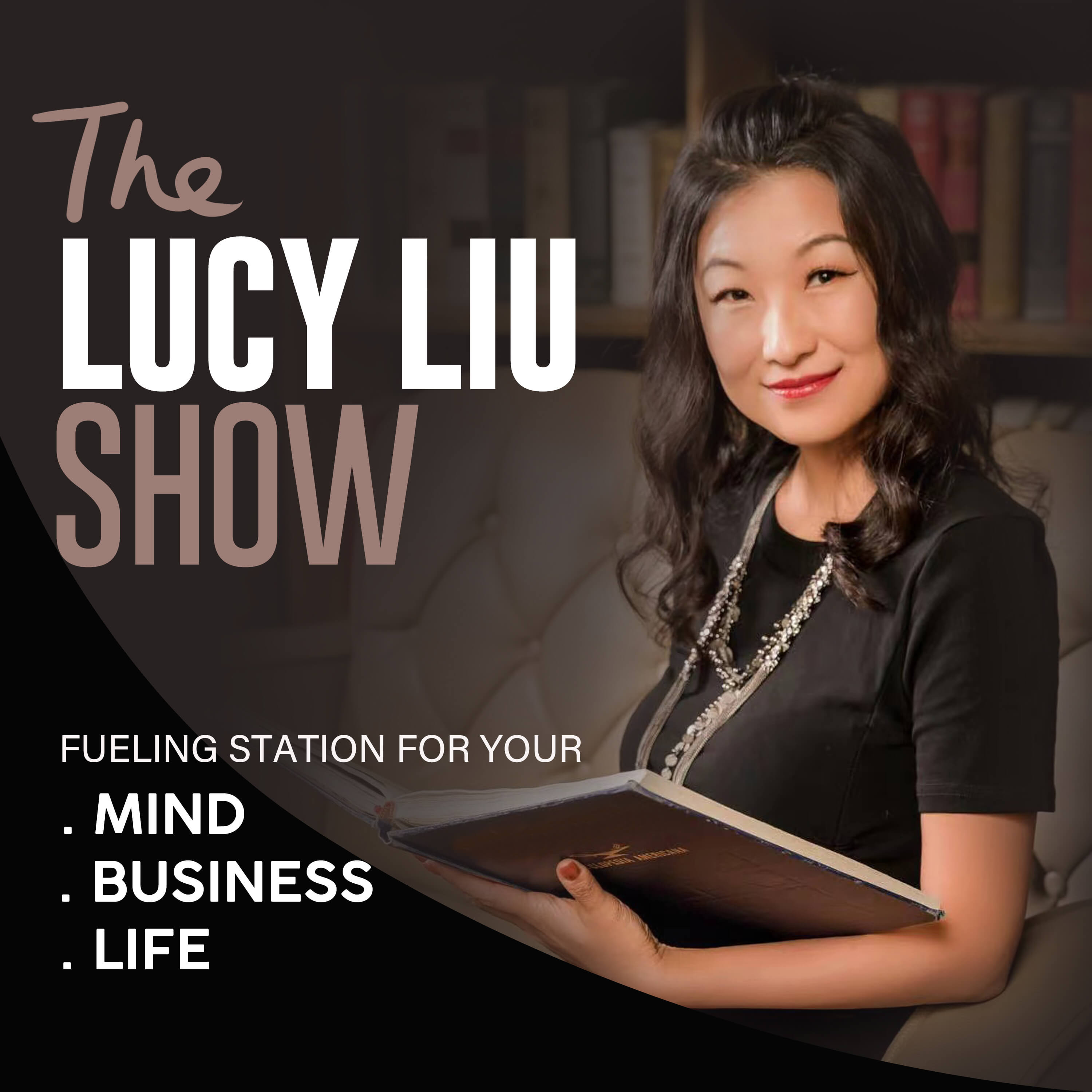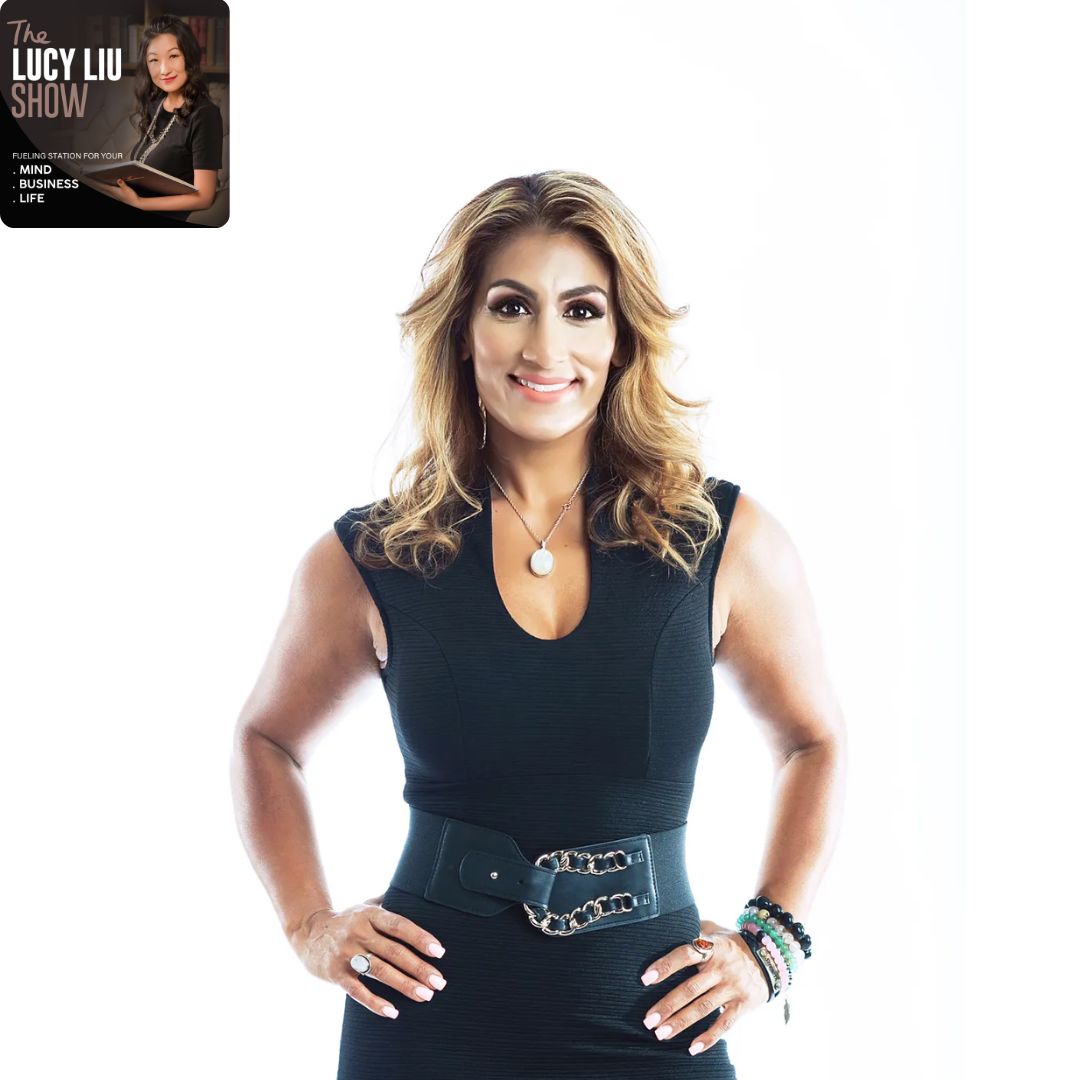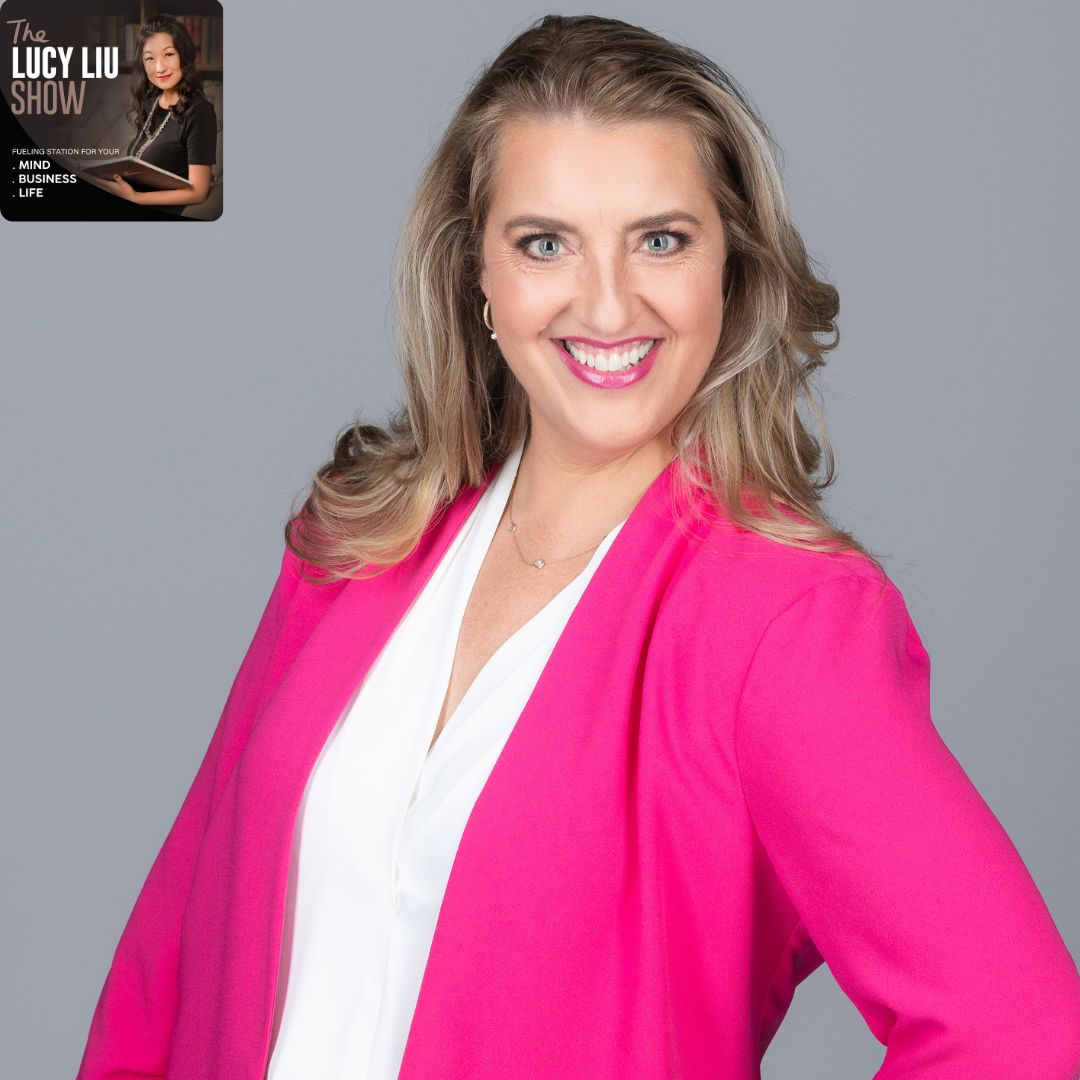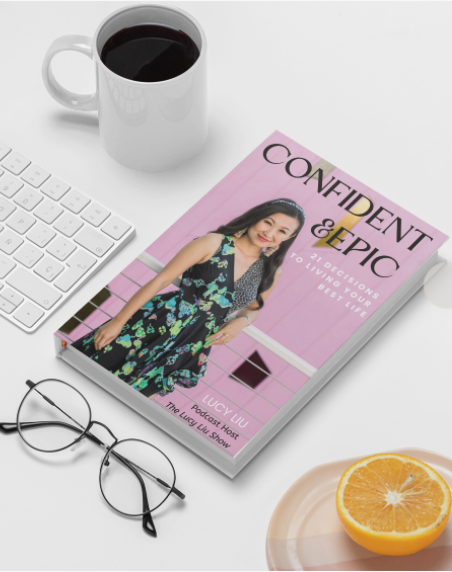Hello, hello, beautiful souls. This episode is for you if you want to have it all and be unapologetically rich.
Doesn’t that sound good? And for that exact reason, I have my special guest today, the powerhouse Shamina Taylor, a former attorney turned wealth consciousness mentor, author of the Amazon number one bestseller, Unlocking the Quantum Women, keynote speaker and podcast host of the Apple podcast, Unapologetically Rich. Welcome to the show.
Thank you for having me.
Yay. I’m a big believer that self-mastery is the key to living life by our own design. And I know you previously talked about why self-mastery is also the key to having it all.
So let’s start there. Let’s start with what self-mastery is. So what is your definition of self-mastery, Shamina?
Self-mastery is learning how to basically be accountable for your own self and self-accountability. It’s it’s being able to reflect back in what what you’re doing, how you’re operating, and then you making the decision, you having the power to change the outcome. And when you can master yourself, you can master your emotions.
You can master your money. You can master your time. This is like when you’re in your power position, as opposed to, you know, people who say, well, if only this happened, I would have this.
With self-mastery, you’re like, well, I’m going to make this happen because I know I can’t. You know, it’s having that power within. And this is where a lot of people hand their power over.
And that scarcity victim mindset comes in. This is where I help people get mastered in self.
Beautifully said. And I love that. And I believe this is a skill that we can actually learn.
Would you agree?
Absolutely. I feel it’s a skill. I also feel it’s a coming home to yourself, your authentic self.
You know, when you are no longer having to be somebody else or wear a mask, needing approval, having validation, having unhealed stuff in your past come through, you see the world through a different lens. You become really unapologetic about who you are, what you say you’re, you know, how you want to live your life, how rich you want to be. You know, you don’t worry about what other people are thinking about you when you are self-mastered.
It is different than just being confident. It’s being in a place of, I know who I am and I’m okay with it. And I’m okay with other people not being okay with it.
And one of the things I usually say is that everything starts with self-awareness. And I think I would say that’s also the first step to having self-mastery.
It’s everything. I mean, a lot of the times people aren’t even aware of what they’re doing because their subconscious minds are running the show. They consciously think that they’re doing the right thing or they’re out seeking the correct goal.
But subconsciously there’s a whole different story that’s happening underneath the surface. And that’s what I work with a lot of my clients and women with. It’s like when they’re like, well, I haven’t hit the income goal yet.
I’m like, let’s dig in. Let’s find out where that story is. Or, you know, why don’t I have that love of my life?
Or why is my relationship in this state? Why is my business here? Why am I not here yet?
And it’s not because of something they’re doing. It’s in fact something that they’re being. And so self-mastery is a way of how you can be aware of what you’re doing, but also the beingness of who you are.
Because that energy is going to trump almost anything you do. It’s going to affect everything you do, right? It’s because I always say energy doesn’t lie, but people do.
You know, that’s my quote. And I feel like you can’t pretend to be something you’re not when it’s on the surface, you know, underneath the surface. So the more that you master who you are, the more clarity you have of what you can do in this world.
Yes. And it’s about learning emotional intelligence. It’s learning, yeah, positive thinking, goal setting, time management, so much to learn, but it’s also worth it in the end, right?
I mean, for me, it’s maybe millions. So I was an attorney making money. And then when I learned to master my emotions, which I talk about in my book, it is not just because most women who are high achievers turn off their emotions.
And this is part of self-mastery. They turn off their emotions and they go into their masculine doing state where they just get things done. And usually that comes from a trauma response of not opening their heart or not being able to feel safe to feel because they’re trying to cut off.
And many of them become the ice queen or they’re not very emotionally mature enough to share that, you know, emotion. This is, you know, emotional intelligence comes deeper than just feeling through things. It’s being mastered in your emotions, especially for a woman.
And what I love to help women do is start to feel again, you know, and be safe in the feeling again, because those emotions are our superpower. It’s our compass on how we master ourselves. It’s OK to be upset.
You know, it’s OK to feel something. But growing up, no one ever said, hey, Lucy, how are you feeling today? You know, it’s like, Lucy, show me how well you can do this thing.
Right. That’s what I was raised with. Like achieve approval, achieve approval.
That was the game. And I found once women can really tap into their emotions, because I’ve said money is masculine and the way we receive it is feminine. If we can work into our emotions, we start mastering ourselves in a different way.
We learn how to be responsive versus reactive. We’re no longer triggered. We’re in a very high, powerful, empowered self.
We then have mastery over money and everything else in our lives. It’s not us, you know, waiting to react to situations in our life.
Yeah, it is powerful. I hear you because when we were younger, when we hear the word self mastery, like I felt like, oh, it’s self control. I need to control myself.
Right. But it’s actually a little bit different. Right.
I actually believe controlling is a trauma response to when you have to control everything, know everything, micromanage people, pleasing perfectionism. They’re all rooted in scarcity mindset because we’re worried about the outcome. And if women actually started doing things a little bit more chaotic, more what they felt like doing in the day, not what they’re required to do.
Instead of having a super busy schedule, like what did you want to do today? Be more intentional with how you live. I think that is actually having more control over creating the life that you want, as opposed to responding to what, you know, reacting to what, sorry, you know, the world is telling you, you have to do.
And when you have mastery, you know what you really want in life. Like if someone, this is the, this is the craziest thing. I’ll ask women, what do you want?
And they’ll like freeze. Oh, I don’t know. They’ll say, well, I want the house.
I’m like, no, like, what do you really desire? And they don’t know because they’re goal checking and goal comes from the masculine, the mind. But the desire is like, well, I, I really want to be, you know, a ballerina.
I’m just thinking some things up or, you know, want to do something else. And they don’t allow themselves to feel into the truest desires of their, their soul because they’re disconnected from their emotions and the mastery of their emotions. So that’s the first thing I start working on with women.
You know, it’s like, what do you want? And not because what society tells you what you want, but really what is it that you truly desire? Because if it’s on your heart, there’s a reason, right?
And when women feed their desires, they make so much more money because it’s coming from a place of a connected state. Like when you’re, when you are feeling that, that, that connection to the outcome, like I wanted a G wagon and I knew I wanted one. And it wasn’t because before when I wanted things, it was just to make me feel validated.
But now I’m like, when I’m driving that car, I feel wealthy. It wasn’t for anybody else, but for myself. And when you start mastering your emotions, you start being able to create a different type of reality from just doing, doing, doing.
Because many times women are doing, and they’re getting burnt out. They’re exhausted. They’re like, why don’t I see the results that I want?
And it’s this shift that you make that actually opens up more wealth and opportunities. And just the joy of life. Like, I mean, I am so fulfilled in my life right now.
And I know that a lot of women, it’s like, what’s that thing missing? And it’s this.
I love everything you just said. And I can’t agree more, especially about goal setting. Because I mean, we all have goals, but your goals should be about you having fun in life.
It should be about you really designing it however you want it to be. And everything else is icing on the cake, right? That’s how you live a fulfilled life instead of just checking off the list.
Absolutely. And unfortunately, many women live by their lists. And they are tied to it.
I have a thing. I’m like, put three things down. You need to get done today.
Don’t put like 100 because you can always feel like you’re not achieving. And for me, being self-mastered is knowing what you’re convicted at. What do you love to do?
What do you stand by? And a lot of times people are afraid to say the things because they’re worried if they step outside of the lines and they do things that other people aren’t doing, they’re going to get some sort of heat from it. But honestly, we are so authentic, all of us.
If we just allowed ourselves to be in this mastered state, our emotions would dictate what we did in life. I know growing up and maybe I’ve been around for a lot, maybe longer than some of your listeners of my age wise, but women were always told that it was not okay to cry. I was called a crybaby when I was a little because I had so much emotions and it was looked upon as a bad thing.
But now that I realize that this is the thing that’s created so much wealth and opportunity in my life because I know how to identify my emotions. I’m not afraid to feel. I’m not afraid to fail.
I’m not afraid to do anything. I don’t have those emotions blocking me from becoming the most successful version of myself. There’s no self-sabotage there because I’m not worried about it.
There’s no income ceilings. There’s no, oh, I have to play small. I can’t be too much.
I have to watch what I’m doing because I’ve removed all of that by mastering myself through my emotions. And again, now I mastered money because money is such an emotional thing for many people. It’s not actually about money.
And a lot of us have three core wounds that we have. It’s abandonment, betrayal, and unworthiness. And for me, unworthiness drove me to my success.
I mean, we all felt not good enough. Even though we knew we were good, it still drove our success. But when you become mastered in yourself and your emotions, you no longer have to wear that mask.
It’s safe to fail. It’s safe to be vulnerable. It’s safe to do the things that you weren’t told.
Intimacy is a big thing for my clients because they don’t ever want to ask for help. So they don’t have great big support teams. They do everything themselves.
And I’m like, this is not how you’re going to make money or have the life. You can’t exchange time for money. We’ve got to learn how to let people in.
And it’s a hard thing for women when they’re in that place of not being mastered in their emotions.
And another word that came to mind when we say so much like self-control, self-sabotage, everything starts with the self. I think that’s what’s important to get through is you can depend on yourself. That’s who you truly can depend on.
And that’s why it’s important for you, the self, to have that self mastery instead of feeling the victim mentality or blaming someone else, you know, blaming your parents for what you were given, blaming your environment. Right. I think that comes up a lot for my clients as well.
They’re telling me what’s affecting their success. And I’m like, that’s not true. It’s about you.
Right.
Absolutely. As soon as I can rewire their victim mindset, and I have women who are eight figures a year that still have the victim mindset, and I have to work through that. Once we move through that scarcity or that old story and we find it and we can rewire it because you can’t attract more abundance and wealth and posterity and keep it because women can make the money, but they will go out the window.
I can see their abandonment wound comes up and it’ll come in and go out. They’ll have inconsistent cash months. They’ll be things where they’ll have a turnover in their team.
Things will just keep coming up where they’re like, I don’t know why this is happening. I mean, because we are the blueprint for our life and business. So whatever you’re doing, you’re dictating through everything around you, your business, your life, it’s you, right?
You’re determining it. So the more self-accountable, the less blame, which is, and you know, the craziest thing, sometimes women don’t even know they have the story. And I’ve got women who are making $100,000 a month and they’re like, I don’t know where the money’s going, you know?
And I’m like, let’s talk about it. And I find the story. I’m like, okay, tell me.
And it takes me like three or four questions and I get to it. And I’m like, all right, here it is. Here’s the story that you keep telling on a subconscious level every single day.
And you see the world through these lens. This is why this is happening, right? So it’s crazy.
And I love women who are listening to podcasts like this because they’re looking to improve themselves. They’re looking to betterment themselves instead of just staying in a place that’s not, you know, getting them the result. So, you know, cheers to you guys for doing that.
Yeah, absolutely. But I think on top of that, you actually, when you hear nuggets from our beautiful guests, implement them, you know, really come and reflect what can you do today differently? What’s one area of your life or business that you can improve from what you hear, right?
To better self mastery so that you can actually have it all.
Absolutely. I feel like journaling has been something that’s changed my life. I have a great journaling program too that I do.
But I mean, I feel like journaling is one of the things that, because I couldn’t BS myself anymore. It was like, all right, let’s get real right now. Let’s just, it’s just me, you and the pen.
You know, what are you actually feeling? What are you actually thinking? Because we think our thoughts are hidden.
We think that, you know, the emotions are hidden just because we’re not saying them out loud or we’re putting a name on them, but they’re there. And so if you can get real with yourself and find out where it is, I mean, that would be the first order of business. I have a thing that I do and I teach one of my programs and I say, keep a trigger journal every week, because if you can see how many times you get triggered, just write it down.
Don’t respond to the person. Just write down how many times you, someone has said something, someone did something, they could have cut you off. You’ll see where you’re not mastered because you’ll see how you’re wanting to react to that person as opposed to respond.
And then you go keep track of those things and see, is there a common theme? Is there a common theme among this? Like when that person says this, when this happens, I feel like this, you know, think about one of those core ones I mentioned, and then, then you can get to the bottom of things.
And I, and like I said, this is something that’s really important to find out because if you’re handing your power over to someone, especially a stranger all the time, you are not in an empowered place to be self-mastered, to be self-accountable, to have, because if it’s on the outside, then how can you get to the next level on the inside, right? If you feel like the power’s on the outside, but when you know everything, like you can change, you, you, you’re the reason you’re the problem and you’re the solution. That’s when you are going to get to a really self-mastered place, in my opinion, you know, like what would she, would she say, um, that gal, that, that pop singer, Taylor Swift, you know, I’m the problem.
And when you really, really recognize that you are the problem, that is like the first step to becoming self-mastered.
Yes. Connect to your truth. Be truthful to yourself, right?
Am I the problem? Because once you know yourself, you have a much sharper parameter for what feels good, what triggers you and what areas you need to improve. There’s always room for improvement, but that’s the fun of life, right?
Absolutely. It changed my life. It changed my life and it changes the lives of the women that I, I mentor.
And, and, you know, I feel like us women, we are so powerful. We can do so many great things when we tap into the root of our superpowers and our emotions. And the more that we can use them for good and not for us to be upset about things that literally don’t matter anymore from the past.
Like let’s, let’s go create amazing things in the world. And, and that’s why I say that we get to be unapologetically rich. You know, I want more women to become millionaires and multimillionaires because with money, we can do many things, you know, we can create, create major change in the world.
And the ripple effects to our daughters.
Ah, I’m telling you my children, when I see how mastered they are in their emotions, it doesn’t matter how much money I made. Because when I see that I’m like, that to me is success. Because I’ve ended generational trauma.
I’ve ended the way that we do things. They see the world from such a different place. They’re both in healthy relationships.
My daughter is 17. My son is 18. He just went off to college.
They know how to communicate to themselves. They also know that, you know, self-discipline waking up in the morning, the things that they have to do, it’s all the changes within them. And they no longer, you know, see the world if they did at a victim like that’s on the outside of me.
And that to me is the biggest thing when you do this work. And if you have children, you are going to affect them. And giving your kids money is one thing, you know, and teaching them how to make money.
But teaching your kids this, this is a game changer for their whole lives because they’re going to, they’re going to have fruitful relationships. They’re going to feel fulfilled. They’re not going to be waking up one day going, well, I did all the successful things.
Now what? You know, they’re going to be able to do it from a different place, which to me is that’s magic.
Beautiful. Thank you so much for sharing your wisdom. Is there a favorite quote that you go by in life?
I might butcher it, but it’s people won’t remember what you tell them or what you say, but they’ll always remember how you made them feel. And to me, that is such a big thing. And I try to leave that with everyone that I meet that they know that even if it’s Uber driver, it’s how you, how you made them feel because people remember things on an emotion, not just what you say.
So that’s, that’s my favorite one.
Hmm. Yes, yes. All the yeses.
Well, thank you so much for being with us. Where can we find you?
Well, I would love you to find me on Instagram where you can get me. You can find me on YouTube as well. We’ve had a great channel there.
You can also go grab my book, unlocking the quantum woman. It’s on Amazon and it’s a great book. It’s got five star reviews and you can come listen to our podcast unapologetically rich.
It’s different than probably what Lucy does a little bit, but it’s also going to compliment the work that she teaches you guys. And I think it’s a great way to add more to you. And you can come join our quantum woman group on Facebook.
We’d love to have you.
Awesome. Thank you.
Thank you for having me.




 Lucy Liu is a master life coach helping women uplevel in business and life to confidently live an epic life! She is an unshakable optimist, wife, mom, entrepreneur, workshop facilitator, motivational speaker, best selling author and podcast host of The Lucy Liu Show.
Entrepreneurs & high achievers hire her to see clarity and take quantum leaps FAST. Because most of them are overthinking, scattered and self-doubting. She's best at helping you get unstuck, make faster decisions and fulfill higher potential. Bottom line: not only make more money and impact, but have more fun and live an EPIC life by design.
She has been featured in Medium, VoyageLA, Elephant Journal, ThriveGlobal, South China Morning Post and dozens of other media outlets.
Lucy Liu is a master life coach helping women uplevel in business and life to confidently live an epic life! She is an unshakable optimist, wife, mom, entrepreneur, workshop facilitator, motivational speaker, best selling author and podcast host of The Lucy Liu Show.
Entrepreneurs & high achievers hire her to see clarity and take quantum leaps FAST. Because most of them are overthinking, scattered and self-doubting. She's best at helping you get unstuck, make faster decisions and fulfill higher potential. Bottom line: not only make more money and impact, but have more fun and live an EPIC life by design.
She has been featured in Medium, VoyageLA, Elephant Journal, ThriveGlobal, South China Morning Post and dozens of other media outlets. 


